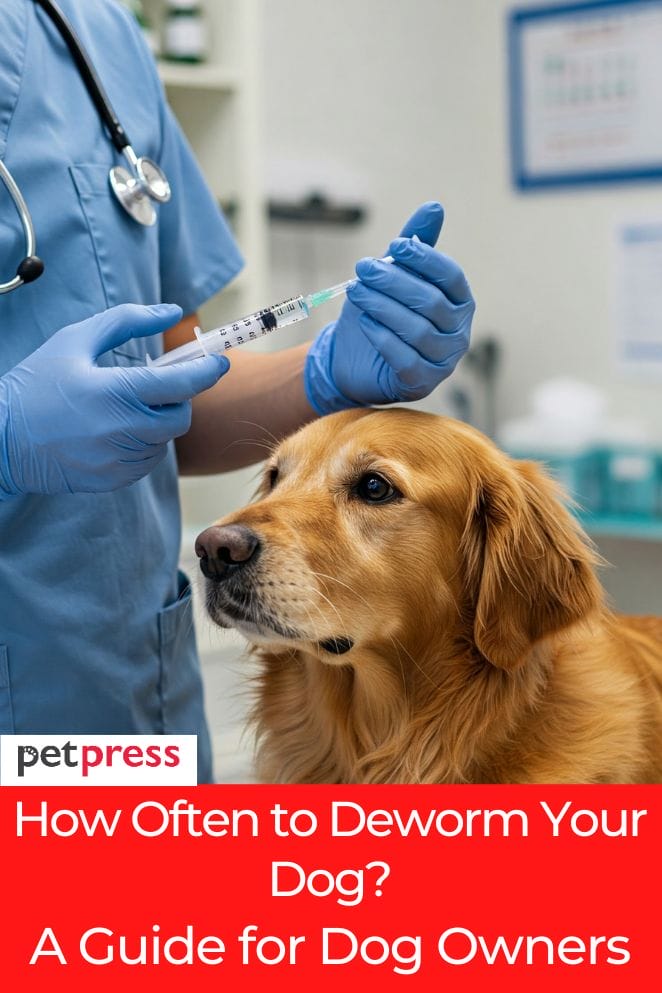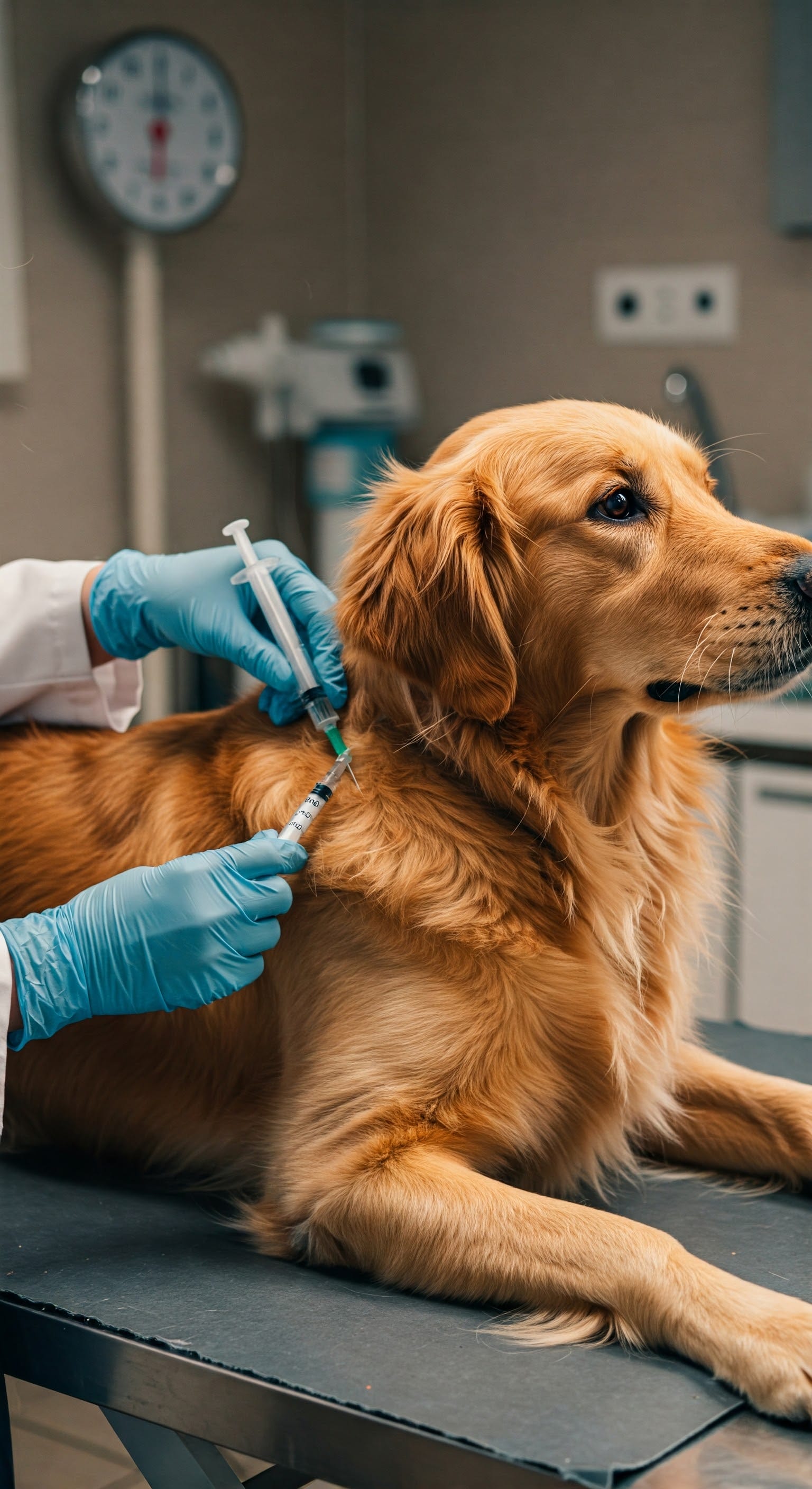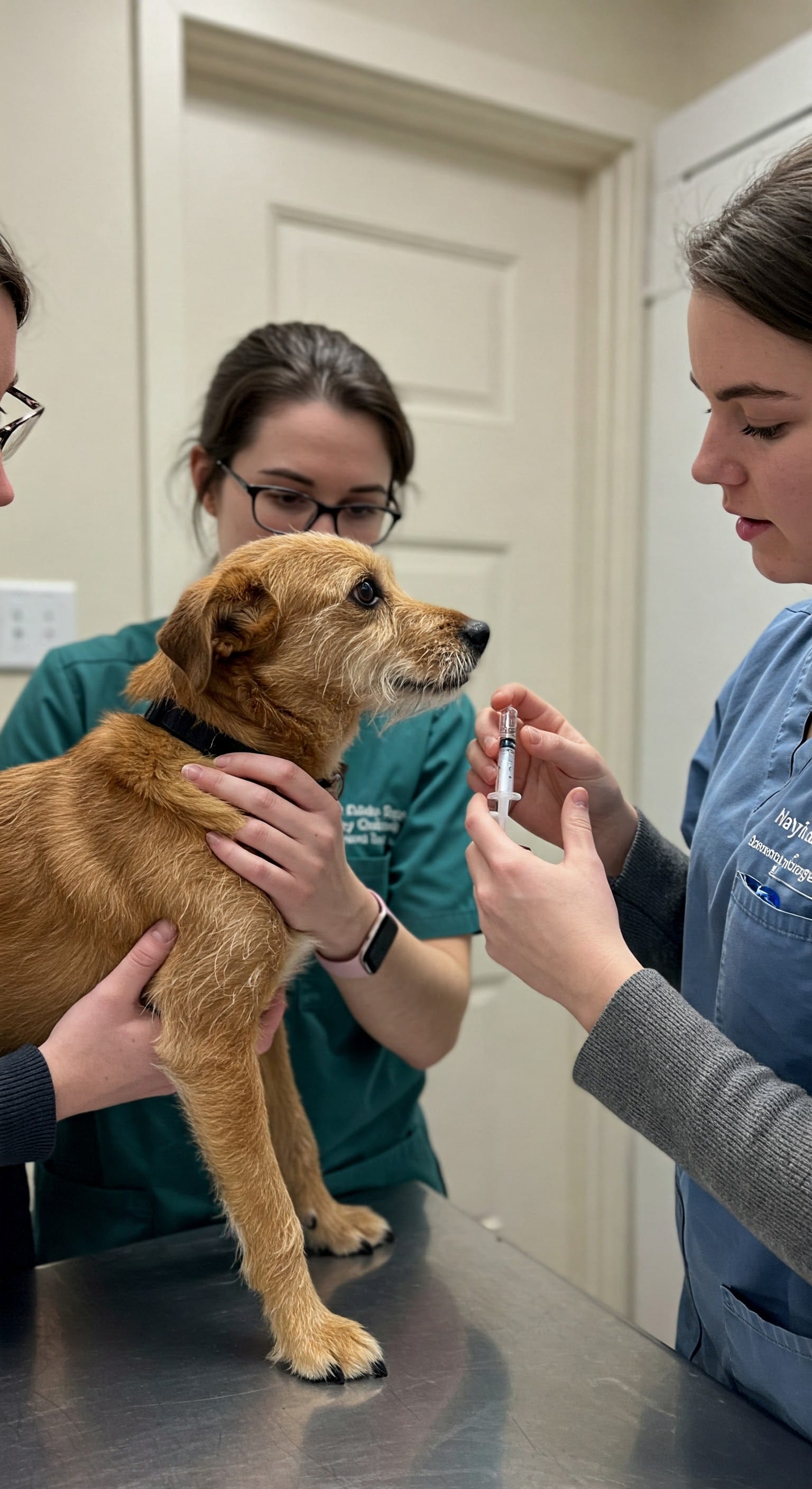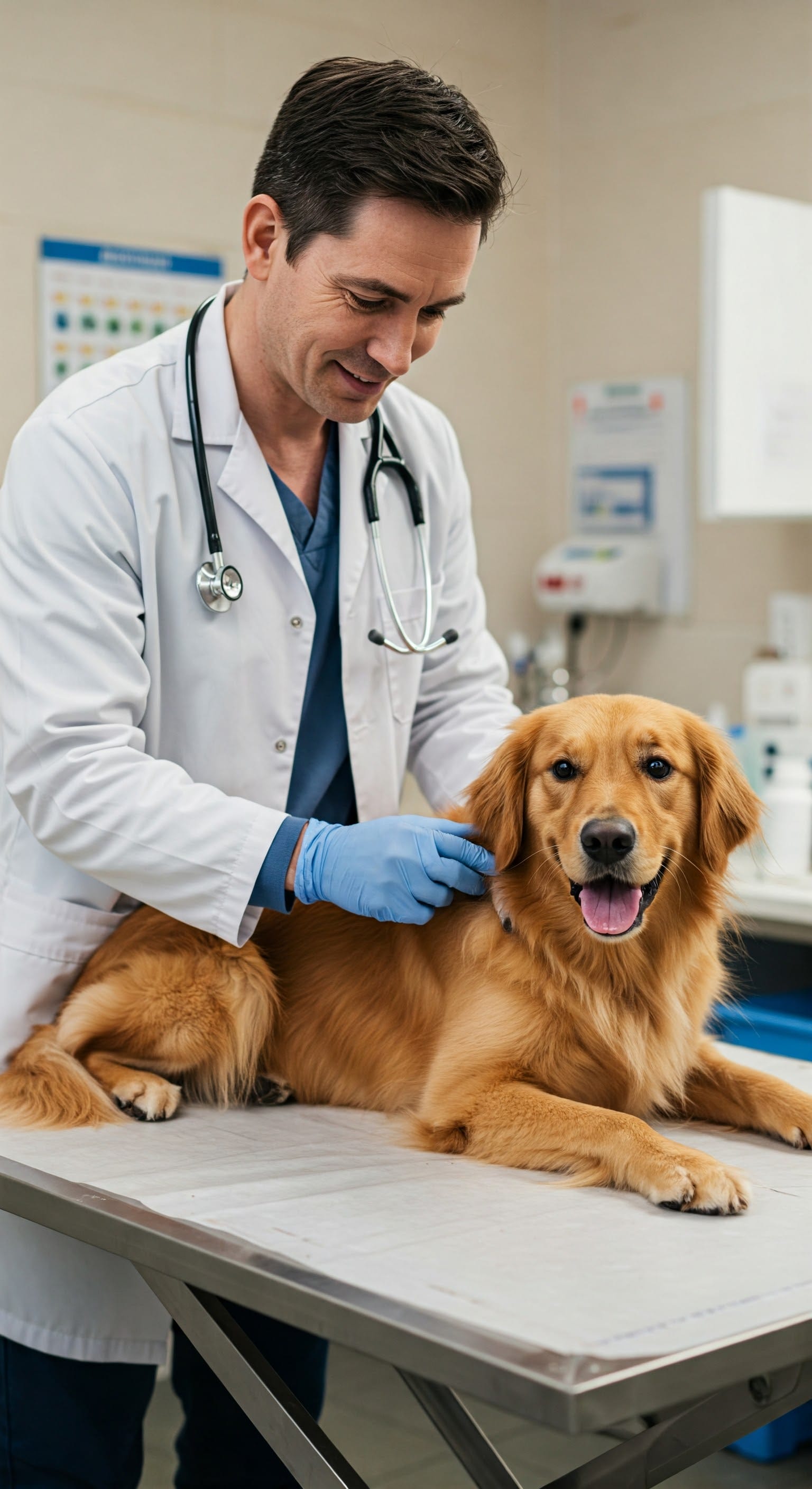
Got a dog? Awesome—you’ve basically invited a four-legged best friend, personal therapist, and part-time floor vacuum into your life.
But along with the zoomies and sloppy kisses, your pup might also come with… worms. Ew, we know. Not the kind you take fishing—the kind that throw a parasite party in your dog’s belly.
These sneaky little freeloaders—like roundworms and tapeworms—can make your dog sick and even spread to humans. Yep, they’re that rude.
The good news? You can totally stop them.
Think of this guide as the Avengers squad for your dog’s gut health—we’re here to help you know when to deworm, what signs to watch for, and how to keep your pup parasite-free and thriving.
What Is Dog Deworming?
Deworming is basically giving your dog meds that tell the nasty belly invaders—aka worms—to pack their bags and get out.
These parasites love hanging out in your dog’s digestive system like it’s an all-you-can-eat buffet.
But instead of paying rent, they cause problems like diarrhea, weight loss, and in extreme cases, serious damage to your dog’s organs. Not cool.
Here are the usual suspects:
- Roundworms – the OG troublemakers
- Hookworms – tiny but vicious
- Whipworms – sound like villains from a Netflix series
- Tapeworms – they ride in on fleas like it’s Uber
- Heartworms – not technically part of the regular worm squad, but still dangerous (and they show up via mosquitoes like unexpected plot twists)
Each of these creeps needs a different kind of treatment, so don’t just guess.
Call your vet—aka your dog’s personal Dr. Strange—for a game plan that actually works.

How Do Dogs Get Worms?
You’d think worms would need an invite to crash your dog’s insides—but nope, they’re sneaky little party crashers.
Dogs can pick up these uninvited guests in all kinds of gross-but-totally-normal dog ways.
Here’s how it usually happens:
- Mother’s milk – Puppies can get worms from mom before they even open their eyes. Welcome to the world, baby… have a parasite.
- Sniffing or licking poop – Dogs are poop detectives. If another dog’s stool has worm eggs, your curious pup might accidentally slurp up trouble.
- Fleas – Tapeworms hitch a ride on fleas like it’s Mad Max: Parasite Road. If your dog eats a flea (and let’s be honest, they will), boom—tapeworm.
- Raw meat or wildlife – Hunting dogs, raw feeders, or squirrel-chasers can pick up worms from critters that already have them.
- Mosquitoes – The villains of summer. One bite can pass along heartworm larvae straight into your dog’s bloodstream. Yikes.
Since dogs basically live like toddlers who lick everything, avoiding worms completely is next to impossible.
That’s why regular deworming isn’t just smart—it’s superhero-level preventive care.
How Often Should You Deworm Your Dog?
Just like brushing your teeth or binge-watching your favorite series, deworming your dog needs to happen regularly.
But how often depends on your dog’s age, lifestyle, and how likely they are to meet a parasite on their daily adventures.
Here’s the breakdown, simplified:
Puppies
Think of puppies as babies in fur pajamas—super cute, super wiggly, and super prone to worms.
They need deworming on a tight schedule:
- Every 2 weeks starting at 2 weeks old until they hit 12 weeks.
- Then once a month until they’re 6 months old.
Puppies are worm magnets because their immune systems are still figuring life out—and they can pick up worms straight from mom.
Adult dogs (6 months and older)
By now your dog’s more seasoned—like a teenage wizard who knows a few spells but still trips over their own paws.
- Every 3 months (yep, like a quarterly report but for poop monsters).
- If your dog’s a high-risk adventurer—loves dog parks, eats weird stuff on walks, or lives that raw food lifestyle—monthly deworming is safer.
Also: Get a poop check (fecal exam) once or twice a year to see if any unwanted guests snuck in.
Pregnant or nursing dogs
These moms-to-be need some backup:
- Deworm before mating, during pregnancy, and after birth (your vet will help with the schedule).
- This keeps the baby pups safe from inheriting a tiny army of belly bugs.
Senior dogs or dogs with health issues
Older dogs or pups with medical conditions need a customized worm-fighting plan.
Their immune systems might not fight off parasites as easily, so the vet might tweak the timing and type of meds.
Pro tip: Don’t play DIY deworming wizard. Talk to your vet before starting or changing any schedule. Giving too much can do more harm than good—and not giving enough? Well, the worms win.

Signs Your Dog May Have Worms
Even if you’re totally on top of your deworming game, those sneaky little parasites can still break in like the villain in a heist movie.
So how do you know if your dog’s got worms doing the Macarena in their gut?
Watch for these signs:
- Worms in poop or vomit – Yep, actual noodles. If it looks like spaghetti in their poop, it’s not dinner—it’s time to call the vet.
- Scooting or licking their butt – Cute? Maybe. Sanitary? Nope. This usually means something back there feels very wrong.
- Losing weight but eating like a Hobbit on second breakfast – If your dog’s food intake is solid but the pounds are falling off, worms might be stealing the nutrients.
- Diarrhea or constipation – Worms love to mess with the plumbing.
- Bloated belly – Especially common in puppies. Think “beer belly,” but way less fun.
- Dull fur or itchy skin – A healthy dog glows like they’re on a shampoo commercial. If the shine’s gone, something might be off.
- Low energy / acting mopey – When your usually hyper pup turns into a couch potato, it’s not laziness—it could be worms draining their energy.
If your dog’s showing any of these signs, don’t just Google it or ask your group chat.
Get them to the vet ASAP for a poop check (yes, it’s gross, but super important) and the right treatment.
Types of Dewormers and How They Work
Not all dewormers are created equal. Here’s a quick rundown of the types commonly prescribed:
| Worm Type |
Common Medications
|
| Roundworms |
Pyrantel pamoate, Fenbendazole
|
| Hookworms |
Pyrantel pamoate, Milbemycin
|
| Whipworms |
Febantel, Fenbendazole
|
| Tapeworms | Praziquantel |
| Heartworms |
Ivermectin (preventative), Moxidectin
|
Most dewormers come in the form of chewables, pills, or topical treatments. Some broad-spectrum options cover multiple parasites in one dose.
Best Practices for Preventing Worms
Deworming is like brushing your teeth—it’s essential, but not the only thing keeping things clean.
If you really want to keep your dog worm-free and living their best life, follow these everyday moves like a responsible pet-parent superhero:
Pick up poop—every time.
Yes, it’s gross. No, it doesn’t matter if no one’s watching.
Leaving poop in the yard is like leaving out snacks for worms. Clean it up, and your dog (and your neighbors) will thank you.
Wash your hands
After dealing with dirt, poop, or even just giving belly rubs.
Worm eggs can hitch a ride on paws and fur like tiny, invisible hitchhikers.
Use flea and heartworm preventatives—all year long.
This isn’t just a summer thing. F
leas and mosquitoes don’t follow the calendar, and neither do the parasites they carry.
Treat your dog like they’re on a “never let your guard down” reality show.
Stick to safe food—no raw diets, please.
Sure, raw meat sounds wild and ancestral, but it can also serve up parasite larvae on a silver platter.
Go for cooked or vet-approved commercial food instead.
Limit encounters with wild animals.
Squirrels, rabbits, raccoons—they’re basically nature’s Uber for parasites.
Keep your dog on a leash and their scavenger hunts supervised.
Visit the vet regularly.
A checkup isn’t just about vaccines and polite small talk.
It’s also when your vet can run poop tests (aka fecal exams) and catch any wormy invaders before they settle in.

Can Humans Catch Worms from Dogs?
Believe it or not, some dog worms don’t just stop at dogs.
A few of these sneaky parasites are zoonotic—which is a fancy science word for “can jump from animals to humans.”
So yeah, if your dog’s got worms, you might be on their guest list too. Gross.
Kids are especially at risk because, let’s be real—they touch everything, eat snacks without washing their hands, and think dirt is a toy.
Worms love that kind of chaos.
Here’s how to keep Team Human safe:
Keep your dog’s worm and flea meds up-to-date.
No gaps. No excuses. Treat it like a boss battle—don’t give the enemy a chance.
Wash your hands like you just chopped jalapeños and need to put in contacts.
After petting the dog, after playing outside, after poop scoop duty—basically anytime you’ve been near anything even worm-adjacent.
Limit couch cuddles and bed snuggles.
We know it’s hard. But letting your dog sleep on your pillow after they’ve rolled in who-knows-what is like inviting parasites to your slumber party.
Conclusion: Stay Proactive, Stay Protected
Deworming isn’t a “set it and forget it” kind of deal—it’s more like brushing your teeth or charging your phone.
You’ve gotta keep doing it to keep things running smooth.
Knowing the types of worms, spotting the signs, and following your vet’s game plan is the best way to keep your pup living their best, worm-free life.
Whether you’ve got a zoomy little puppy who eats literally everything or a wise old doggo who naps like it’s their job, regular deworming = peace of mind.
Stay consistent, stay on top of it, and you’ll be the MVP of your dog’s health squad.
- Does Cat Litter Melt Ice? The Complete Guide to Winter Safety - January 30, 2026
- Happy Tail Dogs: Understanding This Common Canine Condition - January 29, 2026
- How Cold Can Outdoor Cats Handle? Feline Winter Safety - January 27, 2026


GIPHY App Key not set. Please check settings